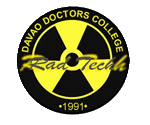Log in
Latest topics
» Anniversary of the Discovery of X-Rayby Admin Sat Nov 05, 2011 10:51 am
» First time members click here to join the fun
by Samjaypineda Fri Nov 04, 2011 10:40 pm
» RADICAL:THE COMIC SERIES
by muyco Tue Aug 16, 2011 1:35 pm
» EdmefoWkes
by Guest Tue Aug 02, 2011 4:52 am
» RT Day with other RT School ( s)
by Polon PearL Thu Jul 07, 2011 9:16 pm
Who is online?
In total there are 2 users online :: 0 Registered, 0 Hidden and 2 Guests None
Most users ever online was 82 on Mon May 31, 2021 1:28 pm
upright open MRI
radiography101 :: Updates :: Updates
Page 1 of 1
 upright open MRI
upright open MRI


Upright Open MRI has brought Magnetic Resonance Imaging to the
next level. The Upright Open MRI is the only whole-body MRI with
the ability to perform Position Imaging
 . Patients can be
. Patients can be scanned in a multitude of positions, including standing, sitting,
flexion, extension, rotation and lateral bending, as well as the
usual recumbent positions used in traditional MRI scanning. Patients
can be scanned in upright, weight-bearing positions and their
positions of symptoms or pain. These positions allow the radiologist
to view pathology that may have been hidden in traditional imaging.
Imaging in the sitting or standing position allows the spine
to be studied in its natural state. Did you know pathologic conditions,
such as disc herniation and disc bulges are best seen while erect?
The Upright Open MRI has excellent image quality. It is great
for children, patients with a large frame, patients that are physically
incapablable of lying down and those who are simply unable to
tolerate other MRI scanners.
PREPARATION AND SPECIAL INSTRUCTIONS

No preparatory tests, diets, or medications are usually needed when
undergoing an exam in our Upright Open MRI. Our Upright Open MRI
is equipped with a large flat screen television for viewing pleasure.
If you wish, you may bring your favorite DVD.
The strong magnetic field used for MRI will exert force on any
iron-based or ferromagnetic object. The MRI staff will ask whether
you have a prosthetic device, implanted port, infusion catheter
(brand names Port-o-cath, Infusaport, Lifeport), or any other
implanted devices. Surgical staples, plates, pins and screws pose
no risk during MRI. Tattoos, permanent eyeliner, metal zippers,
and similar metallic items can distort the images, but pose no
harm.
An X-ray may be acquired if you have ever had a bullet or shrapnel
injury, or ever worked with metal.
Objects that will need to be removed before
the MRI procedure includes:
- Jewelry
- Watches
- Hairpins
- Clothing containing metal zippers, belts, or buttons
- Removable dental work (non-removable dental work is fine,
but may distort the images if scanning the facial or head area) - Eyeglasses
- Hearing aides
- Neuro-stimulator (Tens-unit)
MRI should not be performed on most people
with:
- Inner ear (cochlear) implants
- Brain aneurysm clips
- Some artificial heart valves
- Heart pacemaker
- If you might be pregnant, this should be mentioned to the
technologist or radiologists
WHAT TO EXPECT

The Upright Open MRI eliminates claustrophobia. Nothing is in front
of the face or directly overhead. The patient will be able to
relax, read, and even watch T.V. while having an exam in the Upright
Open MRI. The Upright Open MRI is very quiet, there is not any
loud tapping noises like you may have experienced with prior MRI
scanners.
The patient will need to remain still during the imaging process.
When the exam is over the patient is asked to wait until the images
are examined to determine if more images are needed.
Depending on the exam, a contrast material may be used to enhance
the visibility of certain tissues or blood vessels. A small needle
will be placed intravenously in the arm or hand. Contrast material
is injected, about two-thirds of the way through the exam. The
most common MR intravenous contrast agent, gadolinium, is very
safe. Sequences performed with intravenous contrast may provide
additional data for diagnosis.

After an MRI scan, you may resume normal diet, activity, and medication.
A radiologist experienced in MRI will analyze the images and
send a report with his or her interpretation to the patient's
personal physician within 24 hours or less.
®krypton- Posts : 11
Join date : 2009-08-10
radiography101 :: Updates :: Updates
Page 1 of 1
Permissions in this forum:
You cannot reply to topics in this forum
